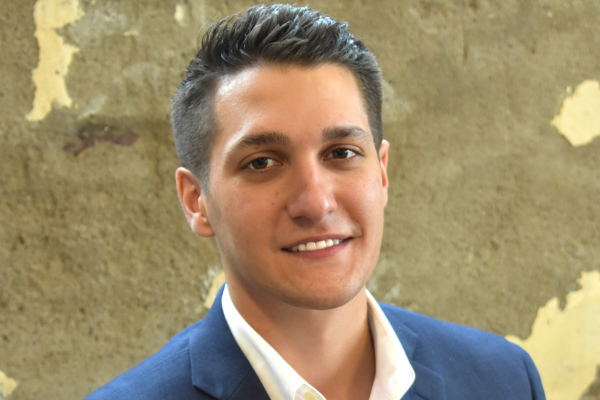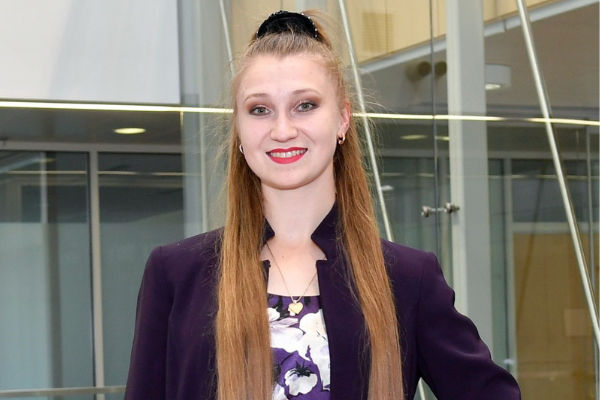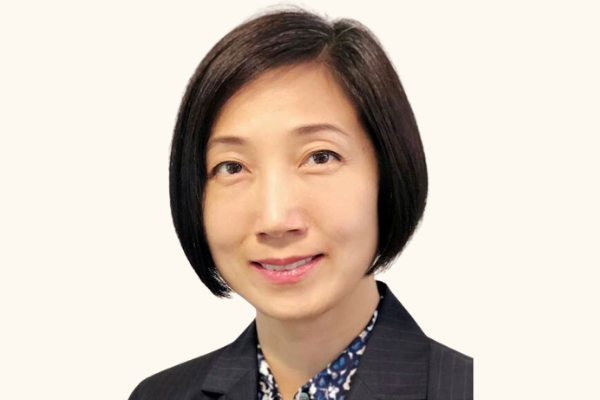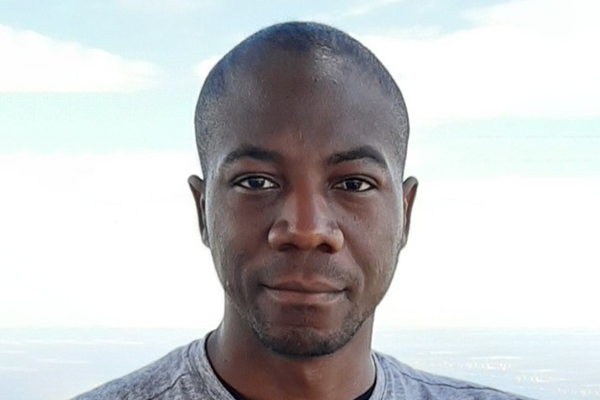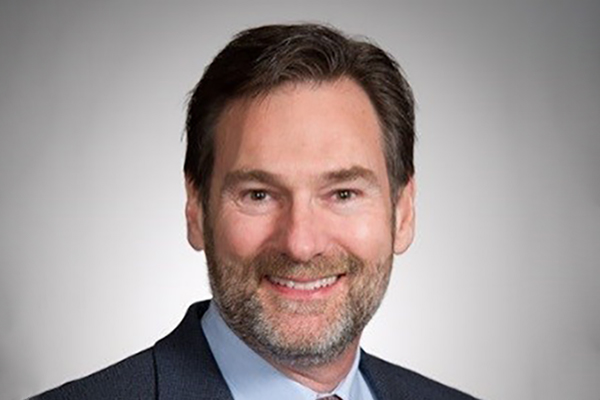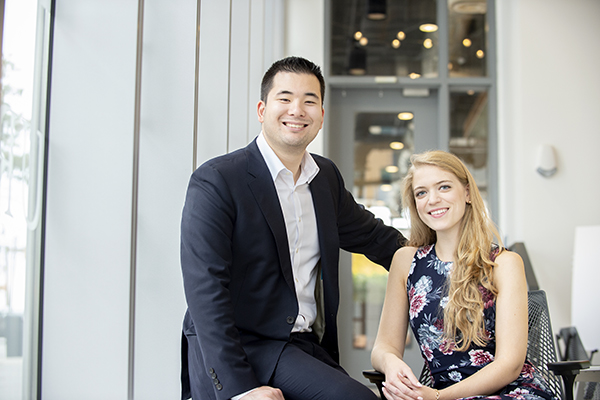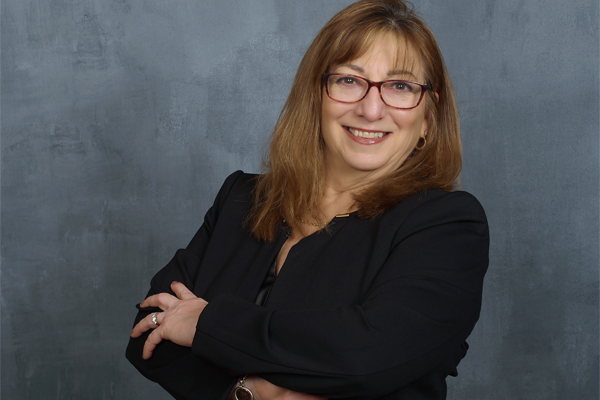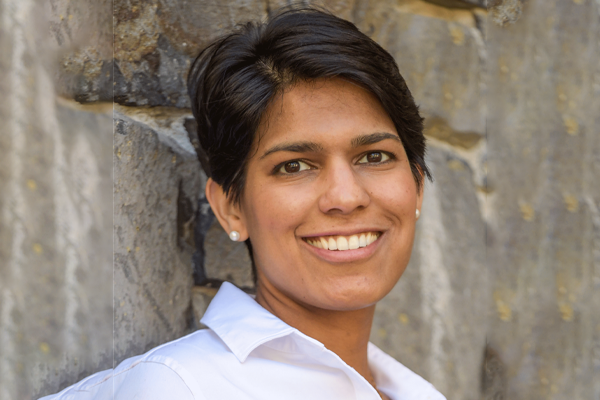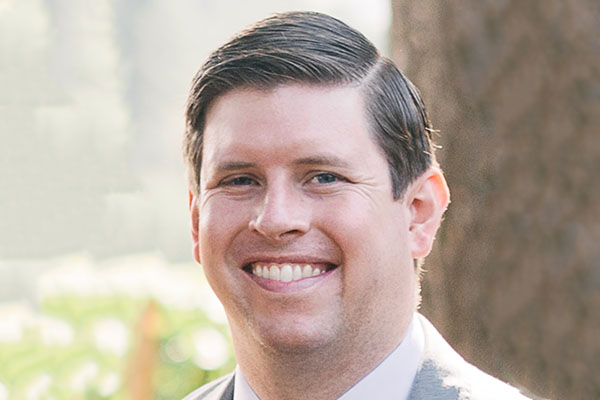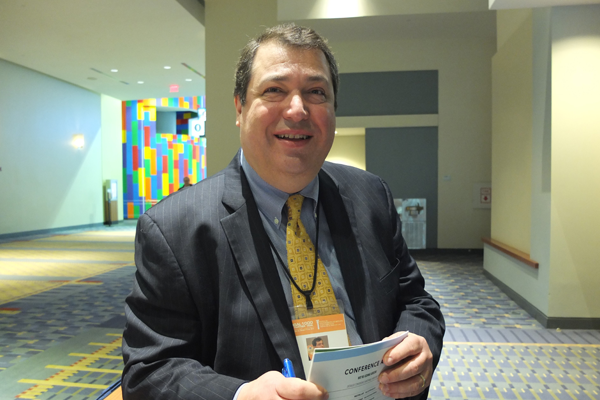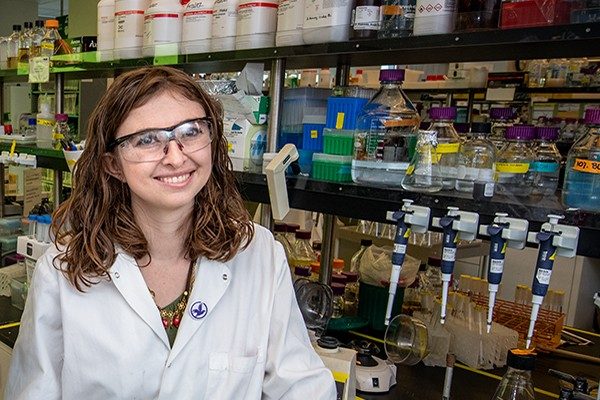
Christina Boville has had a remarkable few years. In 2018, during her postdoctoral fellowship at Caltech, her advisor, Frances Arnold, won the Nobel Prize in Chemistry for pioneering the use of directed evolution to improve enzymes. The next year, Boville, Arnold, and David Romney co-founded Aralez Bio to commercialize this powerful technology, and Boville became an Activate Fellow, embedded at Lawrence Berkeley National Laboratory’s Cyclotron Road Division.
Last summer, MIT Technology Review named Boville to its prestigious list of Innovators Under 35. None of the considerable hurdles of launching a startup during a pandemic have bumped Aralez Bio off its trajectory; the two-year-old startup is already generating revenue and had customers in its first month of operation.
Aralez Bio uses engineered enzymes to make valuable chemical products and to expand the scope of products that can be produced bio-renewably. With directed evolution, it trains enzymes to perform novel chemistry with superb selectivity and efficiency, merging the green character of nature’s biosynthetic mechanisms with the versatility of traditional chemistry. Aralez Bio’s flagship platform creates noncanonical amino acids (ncAAs), which are used in agriculture and to make 12 percent of the 200 best-selling medicines.
We chatted with Tina about her startup and her path from PhD to CEO.
Can you summarize the advantages of enzyme engineering to produce non-canonical amino acids, particularly in terms of green chemistry?
Nature was built using 20 amino acids, but modern chemical and pharmaceutical manufacturing has created a demand for many more. These ncAAs are challenging to synthesize and require time-consuming multi-step synthetic routes that generate waste at every step. Our engineered enzymes can manufacture hundreds of enantiopure ncAAs in a single step, with water as the only byproduct.
Enzyme engineering is a great tool for manufacturing ncAAs because it enables highly chemo- and enantioselective reactions without the need for protecting groups. This approach offers advantages over analogous chemical syntheses because it does not require expensive transition metals or toxic reagents. Our approach to enzyme-mediated synthesis is also distinct because it combines two fragments of similar complexity through formation of a central C–C bond, whereas enzymes are typically used only to set the stereochemistry at the end of a mostly non-enzymatic synthetic route. These advantages offer environmental benefits—our one-step process generates 100-times less waste and reduces energy consumption by over 30 percent—and enables us to make highly-pure ncAAs in a matter of days and for a fraction of the cost.
What challenges of being CEO didn’t you expect? (Does it help you to be a hobbyist Muay Thai cage fighter?)
Scientist and CEO require very different sets of skills, and I didn’t anticipate how many hats a founder has to wear in a small organization in order to keep things running smoothly. I work in manufacturing, customer service, legal, human resources, purchasing, and accounting all at once. It isn’t for everyone, but I thrive on the chaos because it has enabled me to learn so much in a short amount of time, and I’m lucky to have a great network of supporters.
Muay Thai taught me perseverance in an environment where you have to stand up again after being knocked down. As a startup CEO you’re responsible for uncountable setbacks and rejections, all while stressed and not getting enough sleep. Startups are a labor of love, and despite the hardships, we have to square up and get back to work.
You talk about the importance of listening to customers. How do you connect with them and how you put their feedback to use?
The first step of founding a company is getting to know your customers. While I was a postdoc at Caltech, I did dozens of customer discovery interviews—asking complete strangers for twenty minutes of their time. At first only 5 percent of my messages got a response, but those conversations allowed me to understand our customers’ problems and the value of our technology.
For example, I initially expected that cost would be the deciding factor for customers, but I discovered that our customers’ pain points are actually turnaround time, reliability, and product purity. In an extreme case, we have a customer that employs five chemists for nine months to make a complex ncAA, when our enzyme can make it overnight. Without customer input, I would have been trying to solve the wrong problem. Even now, we regularly solicit feedback from our customers to ensure our product meets their specifications and to provide direction for the company’s growth.
As the company grows, how difficult has it been to scale for delivery; what lessons can you share? Why do you refer to David Romney as the guru of scale?
Coming from an academic background I didn’t appreciate the intricacies of manufacturing, so I thought it was just a matter of making the reaction bigger. I was quickly disabused of that notion! My co-founder David has done an amazing job of transitioning our technology from gram scale to kilogram scale. We can now produce commercial quantities of amino acids and achieve pharmaceutical-grade purity without the use of chromatography, thereby greatly simplifying the workflow.
I learned that it’s important to approach the process holistically, because the best solution may not be an obvious one. For example, we initially focused a lot of time on reaction engineering in order to increase the space-time yield, but we quickly found that the best way to improve our process is to continually engineer improved enzyme variants.
You grew up a fan of fantasy series like the Dragonriders of Pern. Did those influences help guide your career?
I am a geek from a family of geeks, so growing up I was immersed in science fiction and fantasy. The Dragonriders of Pern were my favorite, and featured bioengineered, fire-breathing dragons saving the world from environmental disaster. Books like these got me excited about understanding and modifying biological systems, and this interest has stayed with me throughout my career, eventually leading me to Caltech for my postdoctoral work with Frances Arnold. I may not be working with dragons (yet), but at Aralez Bio, I’m leveraging that passion to provide an efficient, sustainable alternative to ncAA manufacturing using engineered enzymes.
What words of advice would you offer young entrepreneurs hoping to follow in your footsteps?
The best advice I can offer is to surround yourself with supportive people who will help you succeed in your mission. Choosing great co-founders is a big piece of the equation, but I also got amazing support from the Activate Fellowship. The program helped me learn about everything from marketing to intellectual property, and having a network of scientist entrepreneurs that were tackling the same types of problems was invaluable.
The opinions expressed in this article are the author's own and do not necessarily reflect the view of their employer or the American Chemical Society.
Copyright 2021 American Chemical Society (All Rights Reserved)

